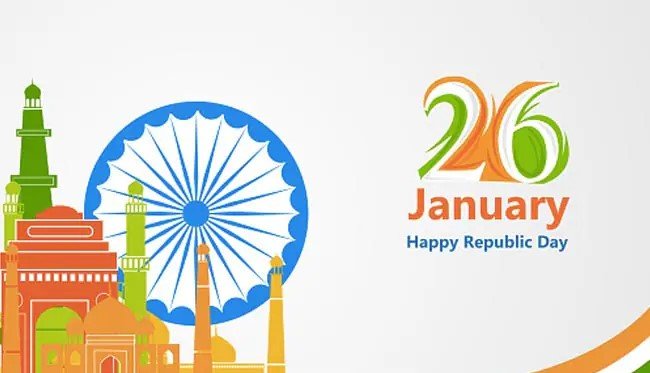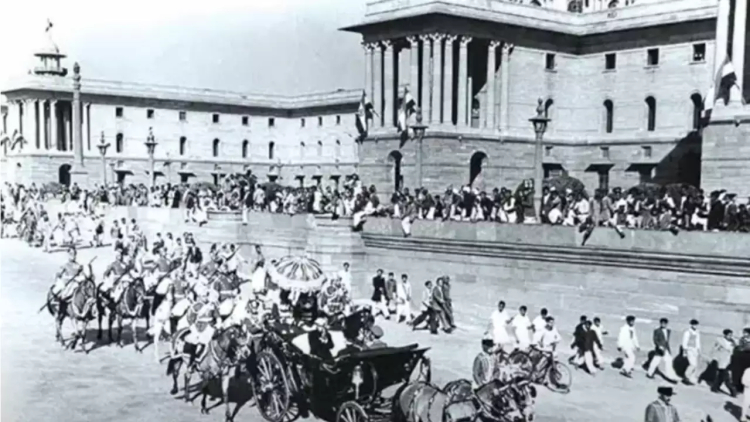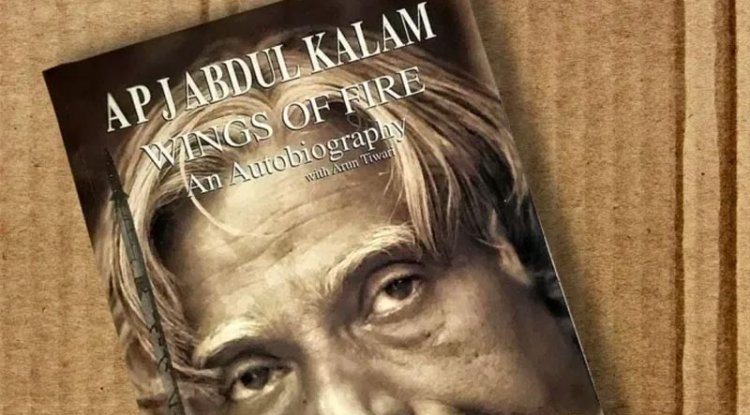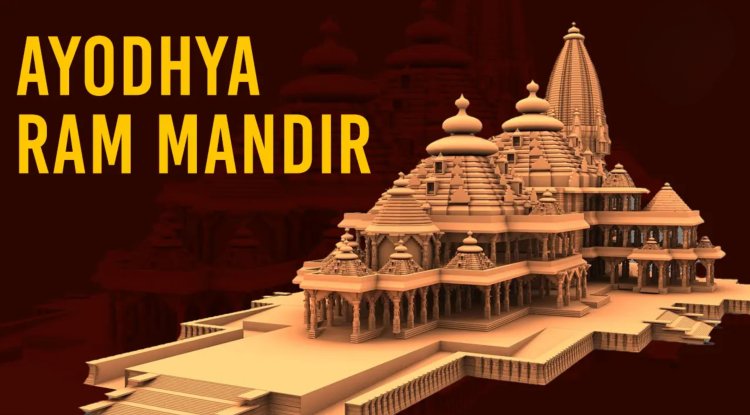Dawn of a Democracy: Unveiling the Significance of India's Republic Day
Every year on January 26th, India explodes in a vibrant symphony of patriotism, marking the momentous occasion of Republic Day. More than just a grand spectacle, this day holds profound historical significance, standing as a testament to the nation's transition from a dominion to a sovereign, democratic republic. It's a day etched in the collective memory of the Indian people, a celebration of the founding principles enshrined in the Constitution - justice, liberty, equality, and fraternity.

From Colonial Legacy to Independent Republic: A Nation Forged in Ink
India's journey to Republic Day was paved with centuries of struggle against colonial rule. The British Raj, for over two centuries, cast a long shadow on the subcontinent, dictating its destiny and stifling its aspirations. However, the embers of freedom flickered within the hearts of Indians, fanned by the winds of the independence movement. Mahatma Gandhi, with his principle of non-violent resistance, Bhagat Singh's unwavering spirit, and countless others who sacrificed their lives for the cause, laid the groundwork for a free India.
Finally, on August 15, 1947, the dream of independence materialized. The shackles of colonialism were thrown off, and India stood tall as a sovereign nation. Yet, the journey was far from complete. The newly independent nation needed a guiding light, a set of principles that would define its identity and chart its course for the future. Thus, the task of drafting a constitution began.
A Constituent Assembly, comprising eminent jurists, leaders, and representatives from diverse sections of society, embarked on this monumental task. For three years, they debated, deliberated, and meticulously crafted a document that would lay the foundation for a just and equitable society. On November 26, 1949, the Constitution of India was adopted, a testament to the collective wisdom and aspirations of the Indian people.
January 26, 1950: A Republic is Born
After months of anticipation, the dawn of January 26, 1950, arrived. In a ceremony steeped in symbolism, Dr. Rajendra Prasad, the first President of India, unfurled the national flag at the Durbar Hall in New Delhi. A 21-gun salute boomed, echoing across the vast expanse of the nation, heralding the birth of the Republic of India. This historic day marked the transformation of India from a dominion into a sovereign, democratic republic, governed by the ideals enshrined in its Constitution.

Echoes of the Past, Dreams for the Future:
The grandeur of Republic Day celebrations reflects not just the joy of the present but also the echoes of the past struggles and sacrifices. The majestic parade down Rajpath, showcasing the might of the Indian armed forces, serves as a reminder of the nation's unwavering commitment to its security and sovereignty. The vibrant cultural tableaux, depicting the rich diversity of India's states and traditions, celebrates the unique tapestry woven by its people.
However, Republic Day is not merely a day of nostalgia. It is a clarion call, a reminder of the ongoing quest to realize the ideals enshrined in the Constitution. From tackling poverty and inequality to upholding the rule of law and securing social justice, the road ahead for India is paved with challenges. This day inspires every citizen to contribute their part, to strive towards a nation that truly lives up to its democratic ideals.
Beyond the Celebrations: Reflections on the Road Ahead
As India celebrates its Republic Day, it is crucial to reflect on the road ahead. The nation faces challenges like economic disparities, religious and social tensions, and environmental degradation. These issues demand collective action, a renewed commitment to the principles of liberty, equality, and fraternity.
- Education for All: Strengthening the education system is crucial to empower citizens and foster critical thinking. Accessible and quality education can bridge social divides and equip individuals with the tools to contribute meaningfully to society.
- Inclusive Growth: Equitable distribution of resources and opportunities is essential for eradicating poverty and ensuring that the fruits of progress reach all sections of society. Policies and programs that target the marginalized and underprivileged are necessary to bridge the gap between the haves and have-nots.
- Protecting the Environment: India's rich biodiversity and fragile ecosystems face the threat of climate change and unsustainable development practices. It is critical to adopt responsible environmental policies, promote clean energy sources, and encourage sustainable living practices.
- Upholding Democratic Values: India's vibrant democracy must be nurtured and protected. Freedom of speech, expression, and religion are fundamental pillars of a democratic society. It is the responsibility of each citizen to safeguard these rights and participate actively in the democratic process. This involves holding the government accountable, engaging in informed debates on critical issues, and promoting tolerance and understanding.
- Embracing Diversity, Fostering Unity: India's strength lies in its rich tapestry of diverse cultures, languages, and traditions. This diversity, however, must not be a source of division but a force for unity. Republic Day serves as a reminder of the nation's motto, "Satyameva Jayate," which translates to "Truth alone triumphs." The pursuit of truth demands inclusivity, empathy, and respect for differences. By celebrating our shared history and embracing our pluralistic identity, we can build a stronger, more vibrant India.
- Technology and the Future of Democracy: In the era of digital technology, the landscape of democracy is evolving. Social media platforms provide new avenues for public discourse and citizen engagement. The government can leverage technology to increase transparency, improve service delivery, and make information readily accessible to all citizens. However, it is crucial to address the challenges of misinformation, fake news, and digital divide to ensure that technology empowers, rather than undermines, democratic processes.
Beyond the Parade Lights: Unsung Heroes Shaping India's Future
While the grand spectacle of Republic Day parades captures the nation's spirit, the true essence of India lies in the countless unsung heroes quietly toiling across diverse fields. Let's meet a few individuals who embody the dedication, resilience, and positive impact that defines the true strength of India:
Education: Ms. Anjali Devi, Lighting Minds in Remote Villages
Anjali Devi defies the harsh terrain of Ladakh with her unwavering commitment to education. In her makeshift school carved into a mountainside, she lights the lamp of knowledge for over 40 children from nomadic communities. With limited resources and harsh winters, she uses innovative teaching methods like storytelling and nature walks to make learning engaging. Anjali's tireless efforts bridge the educational gap and empower remote communities, making her a beacon of hope in the Himalayas.
Healthcare: Dr. Alok Sharma, Bringing Healing Hands to Underserved Areas
Dr. Alok Sharma braves the scorching Thar Desert to provide medical care to tribal communities in Rajasthan. Overcoming limited infrastructure and cultural hesitations, he runs a mobile clinic, traveling on camelback to remote villages. He treats illnesses, educates about hygiene, and builds trust with the locals, bringing critical healthcare services to those who need them most. Dr. Sharma's dedication not only heals bodies but also builds bridges of understanding, demonstrating the power of compassion in bridging healthcare disparities.
Environmental Conservation: Ms. Padmavati, The Forest Guardian of Uttarakhand
Padmavati's love for the forests of Uttarakhand led her to spearhead a unique initiative to combat deforestation. She mobilized women in her village to form eco-vigilante groups, patrolling forests to prevent illegal logging. Their courage and vigilance not only protect the precious ecosystem but also provide sustainable livelihoods through eco-tourism initiatives. Padmavati's leadership proves that environmental conservation thrives when communities take ownership, paving the way for a greener future.
Social Entrepreneurship: Mr. Vijay Kumar, Empowering Rural Youth with Technology
Vijay Kumar recognized the digital divide hampering rural youth in his village. He co-founded a social enterprise that provides affordable access to computers and internet training. This platform equips young people with essential digital skills, opening doors to online education, job opportunities, and entrepreneurship. Vijay's vision tackles rural-urban disparities and empowers marginalized communities through technology, proving that innovation can transform lives.
These are just a few examples of the countless individuals who weave the fabric of India's progress. Their stories remind us that the spirit of Republic Day is not confined to ceremonial events but resonates in the everyday actions of those who strive to make their communities and nation a better place. Their struggles and triumphs inspire us to embrace our own roles in building a brighter future, a future where the dreams of a just, equitable, and prosperous India truly take flight.
Beyond the Capital: A Kaleidoscope of Republic Day Celebrations
While the majestic parade down Rajpath captures the grandeur of India's Republic Day, the true spirit of the day unfolds in a vibrant tapestry of regional celebrations across the nation. From the snow-capped peaks of Kashmir to the sun-drenched shores of Kerala, diverse voices unite in a chorus of patriotism, each region echoing the essence of the day through unique traditions and interpretations.
In the verdant valleys of Kerala, the air vibrates with the rhythmic beats of Chenda melam, a traditional percussion ensemble, as communities gather for flag-hoisting ceremonies. Boat races snake through serene backwaters, adorned with colorful flags, showcasing the region's maritime heritage. The spirit of inclusivity is palpable as communities across religious and cultural lines come together to celebrate unity in diversity.
In the bustling streets of Kolkata, the day dawns with the soulful melody of Rabindra Sangeet, Bengali songs steeped in patriotism and cultural pride. Grand processions wind through the city, showcasing vibrant tableaux depicting India's history and rich heritage. Young and old engage in lively debates on the legacy of freedom fighters and the challenges of building a just society.
In the serene deserts of Rajasthan, the Thar Desert becomes a canvas for vibrant celebrations. Camel safaris adorned with national flags traverse golden dunes, while folk dancers twirl to the tunes of soulful Rajasthani music. Tales of bravery and sacrifice by Maratha warriors resonate through the air, reminding every citizen of the responsibility to uphold the values of the Republic.
In the serene valleys of Kashmir, the day is marked by a quiet determination. Amidst snow-capped peaks and picturesque meadows, flag-hoisting ceremonies resonate with a deep sense of resilience and hope. Young boys play cricket in open fields, their dreams interwoven with the national aspirations for peace and prosperity.
From the serene shores of Goa where vibrant parades dance to the rhythm of Konkani music to the snow-covered peaks of the Himalayas where prayer flags flutter alongside the national tricolor, each region paints its own unique canvas of celebration. The common thread that binds this diverse tapestry is the shared aspiration for a nation that lives up to the ideals of its Constitution, a nation where justice, liberty, equality, and fraternity flourish for all its citizens.
Beyond the Celebrations: Voices of the People
- A young tribal girl in Assam: "As I watch the flag unfurl, I dream of a future where education empowers every child in my village, just like our Constitution promises."
- A seasoned farmer in Punjab: "My ancestors fought for freedom. My celebration lies in ensuring my land yields a bountiful harvest, contributing to the nation's prosperity."
- A tech entrepreneur in Bangalore: "This day reminds me that the spirit of innovation is in our DNA. I strive to build technologies that bridge the digital divide and empower every citizen."
- A social worker in Mumbai: "My Republic Day is spent serving those who are often forgotten. It's in their smiles that I see the true meaning of liberty and equality."
These diverse voices remind us that the essence of Republic Day lies not just in grand ceremonies but in the everyday actions of citizens who strive to embody the ideals of the nation. As we celebrate unity in diversity, let us commit to building a future where every corner of India echoes with the spirit of progress, inclusivity, and shared dreams.
Voices that Resonate: Quoting Across India's Republic Day
Beyond the fanfare and parades, Republic Day resonates with profound voices, both historic and contemporary. These quotes from national leaders, historical figures, and everyday citizens add depth and personal connection to the day's significance, urging reflection and action.
From the Echoes of History:
- Bal Gangadhar Tilak: "Swaraj is my birthright and I shall have it." - A defiant echo of the freedom struggle and an enduring reminder of the yearning for self-determination.
- Jawaharlal Nehru: "Freedom is not an end; it is a beginning." - A call to action, reminding us that the journey towards a just and equitable society continues beyond independence.
- B.R. Ambedkar: "We must build up a moral code capable of governing us in our day-to-day life." - A crucial insight into the importance of ethical values in upholding the ideals of the Republic.
From the Grassroots:
- A young farmer from Punjab: "I celebrate by ensuring my land yields its best, for the prosperity of my village and my nation." - A humble perspective on how individual contributions weave into the nation's progress.
- A doctor from rural Chhattisgarh: "My Republic Day is spent reaching those who need healthcare the most. In their eyes, I see the promise of a healthier, more equitable India." - A dedication to service and a vision for inclusive development.
- A social worker from Mumbai: "This day reminds me to fight for the rights of the marginalized. When they have justice and equality, then the Republic truly stands for all." - A call to action, advocating for inclusive progress that leaves no one behind.
From the Minds of Visionaries:
- Arundhati Roy: "Every map tells a story." - A reminder to acknowledge the diverse narratives, struggles, and aspirations that make up the tapestry of India.
- Satish Kumar: "Sustainable development is not about economic growth; it's about improving the quality of life for everyone." - A challenge to redefine progress, prioritizing both material and spiritual well-being.
- APJ Abdul Kalam: "You have to dream before you can achieve." - A call to nurture ambitious dreams and use them as fuel for building a better future.
Beyond the Glitter: Tackling India's Socio-Economic Challenges
As India proudly parades its achievements on Republic Day, a deeper introspection reveals persistent socio-economic challenges that threaten to dim the nation's bright future. Poverty, gender inequality, a widening rural-urban divide, and environmental degradation cast long shadows on the celebratory landscape. Ignoring these challenges would be a disservice to the very ideals of liberty, equality, and fraternity that lie at the heart of the Republic.
Poverty's Persistent Grip: Despite significant economic growth, an estimated 22% of Indians still live below the national poverty line. Rural areas bear the brunt, with limited access to education, healthcare, and sustainable livelihoods. Government initiatives like Pradhan Mantri Awas Yojana (housing scheme) and MGNREGA (rural employment guarantee) offer crucial support, but challenges remain in effective implementation and long-term solutions.
Citizen Participation for Inclusive Growth: To truly eradicate poverty, citizen participation is key. Empowering local communities through skill development programs, micro-entrepreneurship initiatives, and digital literacy drives can unlock local potential and create sustainable economic opportunities. Technology can play a pivotal role in information dissemination, financial inclusion, and market access, bridging the gap between government programs and their beneficiaries.
Gender Inequality: A Persistent Stain: India's fight for gender equality remains far from over. Deep-rooted social biases, limited access to education and healthcare, and pervasive female feticide continue to disadvantage women. Government initiatives like Beti Bachao Beti Padhao (campaign for girl child protection and education) offer some hope, but societal mindsets need to be transformed.
Tech-powered Solutions for Gender Equality: Technology can be a powerful tool in addressing gender inequality. Access to online education and training can equip women with skills and knowledge, while digital platforms can connect them to job opportunities and financial services. Additionally, promoting awareness of women's rights through social media campaigns and online support groups can foster a more inclusive society.
Rural-Urban Divide: Bridging the Gap: The widening chasm between rural and urban India poses a major threat to national progress. Limited infrastructure, lack of employment opportunities, and inadequate access to social services leave rural communities lagging behind. Government initiatives like Smart Village schemes and rural connectivity programs aim to address these issues, but more needs to be done.
Citizen-driven Rural Development: To bridge the rural-urban divide, citizen participation is vital. Encouraging volunteers and professionals to contribute their skills and expertise in rural areas can boost development projects. Additionally, promoting sustainable agricultural practices, agro-processing industries, and rural entrepreneurship can create local jobs and attract investments. Technology can play a crucial role in facilitating communication, knowledge sharing, and market access for rural communities.
Environmental Degradation: A Looming Threat: India's rapid development comes at a significant environmental cost. Air pollution, water scarcity, deforestation, and climate change pose major threats to public health, food security, and future generations. Government initiatives like Swachh Bharat Abhiyan (cleanliness campaign) and National Clean Air Programme offer a starting point, but stronger environmental regulations and enforcement are crucial.
Citizen Action for a Green Future: Addressing environmental degradation requires collective action. Encouraging individual eco-conscious practices, promoting renewable energy adoption, and supporting forest conservation initiatives are essential steps. Technology can be leveraged for environmental monitoring, data-driven decision making, and citizen engagement in green campaigns.
Concluding Thoughts:
Celebrating Republic Day is an opportunity to acknowledge India's progress but also to confront its challenges head-on. Tackling poverty, gender inequality, the rural-urban divide, and environmental degradation requires innovative solutions driven by citizen participation and technological advancements. By empowering communities, embracing inclusive development, and harnessing the power of technology, India can truly live up to the ideals of its republic and build a brighter future for all its citizens.
What's Your Reaction?


















